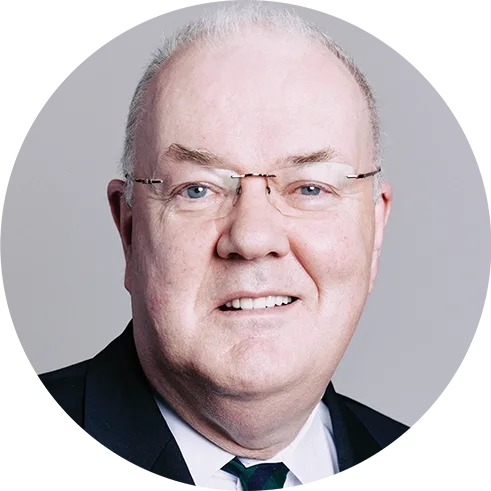A Most Intriguing Event with Derek Thomas

In 451, leaders in the early church gathered at the city of Chalcedon to defend the Bible’s teaching about the divinity and humanity of Jesus Christ. On this episode of 5 Minutes in Church History, Dr. Derek Thomas joins Dr. Stephen Nichols to discuss the Chalcedonian Creed.
Steve Nichols: Well, welcome back to another episode of 5 Minutes in Church History. We, a few episodes ago, had Dr. Derek Thomas with us, and we have him back. We're here at Ligonier's National Conference, so we've pulled him out of his post up there in Columbia, South Carolina, and brought him down to Orlando. It is always a pleasure for me to spend time with you, Dr. Thomas. Thank you for being with us.
Dr. Derek Thomas: Thank you, Steve. No fried chicken and Johnny cakes this time.
SN: We'll catch that on the next round. Well, we talk about the Reformation in church history. We talk about the Great Awakening. There's so many key events that we talk about. Let's take a moment and maybe discuss an event that doesn't get attention all of the time, but nevertheless, one that you think would be helpful for folks to remember and maybe even an event that had a particular impact on you and your ministry. Does anything come to mind as you think about it?
DT: This is a great question. And I actually thought about it more than any of the other questions, because there are so many events. And I thought of doing something quirky and out of the ordinary. But I think Chalcedon in 451—which surprisingly, even in our circles, does not get the attention that it should—and the relationship between the human and divine natures of Jesus, fending off all kinds of issues—Nestorianism and Eutychianism and Docetism—and a whole lot of other things.
SN: These are very complex heresies that had made their way into the church.
DT: Yes, and Apollinarianism. I think that Apollinariansm is alive and well in the modern Reformed church. I mean, a lot of preachers, if you... I do this thing with my students: You're in Capernaum, Jesus is sitting on the wall, disciples have gone to Chick-fil-A to get some food, and this is your moment to go up to him, sit beside him, and ask him a question. So you go up to him and you say, "Jesus, can you sing the first five bars of Beethoven's Fifth Symphony?" And he looks at you because he doesn't understand a word you're saying, because he doesn't speak English. And that simple fact that he has a human mind, and he spoke Aramaic—he spoke Hebrew, he probably had a smattering of Greek, maybe a few words of Latin talking to soldiers and so on—but his first language was Aramaic, and English wasn't even a language, so…
SN: And he grew in wisdom.
DT: …and stature and favor with God and with men. And the fact that people are shocked by that, even in some instances in a classroom, some students get offended by that illustration. And I'm saying that's Apollinarianism right there, that the divine mind of Jesus resides within his human mind in some way.
SN: And the upshot of that is Jesus is not truly human.
DT: And in the early church, Athanasius' point was that he had to be both true God to represent God, and he had to be true man to represent Adam and therefore ourselves, and perfectly so without any kind of mixture.
SN: Dr. Sproul always used to say “true” and “truly” is actually the words of the creeds. We often say fully human and fully divine. Somehow that language seeped in there. But when we talk about Chalcedon, it really is a simple formula. It's complex ideas, but it's a simple formula that he is truly man, truly God. And those two natures are united in one person. So, this must have been just an incredible moment to see all of these bishops gathered there at Chalcedon and discussing these things.
DT: Yes, about a hundred of them.
SN: Yes.
DT: It was a nice place, a resort by a lake. They were well-fed, I think. They were there for several months. It would’ve been beautiful to eavesdrop, sit in a corner and listen to the level of theological debate that must have taken place to produce the Chalcedonian Creed of 451. And the fact that they were able to do so with equanimity was itself, I think, telling.
SN: One church. Amazing. Thank you for shining a spotlight on Chalcedon and the Council and the Creed. And we are grateful for it here as a church in the 21st century. Well, thank you Dr. Thomas. I’m Steve Nichols. Thanks for joining us for 5 Minutes in Church History.
Recent Episodes
Noah Webster: More Words
February 18, 2026|The Nineteenth Century
401 Again
February 11, 2026|The Ancient Church
401
February 4, 2026|General Church History
Noah Webster’s Dictionary
January 28, 2026|Biography
Early Methodism: Circuit Riders and Camp Meetings
January 21, 2026|American Church History
Early Methodism: Beginnings and Revival
January 14, 2026|The Eighteenth Century

